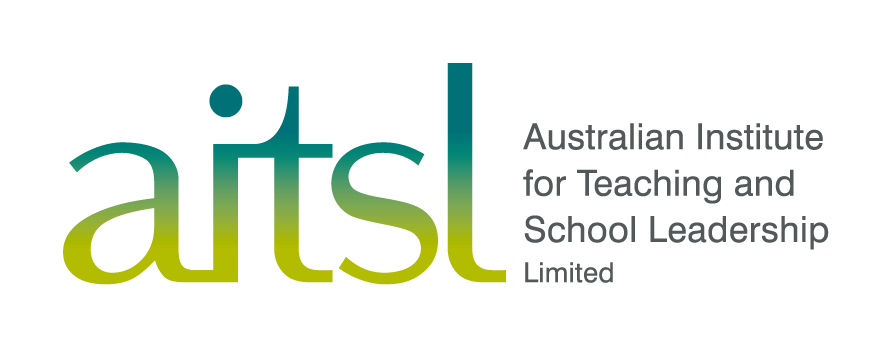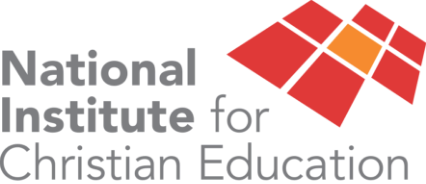This subject critically analyses inclusive philosophy while exploring the specific learning needs for students ‘at risk’ of exclusion. This includes an understanding of the challenges faced by students experiencing marginalisation due to disability, ethnicity, religion, gender or other forms of diversity. Differentiation strategies, behaviour support models and technologies, assessment and evaluation strategies are examined in the context of learning and teaching strategies for individuals with disabilities. Legislative requirements, for people with disabilities and gifted and talented opportunities, are reviewed and the Teacher Education Students (TES) are given the opportunity to review their own attitudes to diversity and disability in the light of their own faith and professional responsibilities.
Discover the foundations of faith and how it relates to one's worldview and purpose. Students will explore the Christian story from Scripture and express ideas of their own faith, examine how faith shapes views on the meaning and purpose of life, the value of humanity and ideas of human flourishing. Expand your perspective in this core subject and understand the significance of faith in all areas of life.
This subject prepares pre-service teachers to teach a comparative religions course such as the New South Wales Studies of Religion syllabus for Years 11-12 developed by NESA. It is designed to advance knowledge and understanding of key theoretical and pedagogical perspectives and issues in the teaching of Studies of Religion. It examines current developments in the theory and practice of Studies of Religion education. Students will work independently, collaboratively and interdependently to develop their capabilities in planning and implementing appropriate curriculum and pedagogy in light of Christian and alternate worldviews. The subject aims to develop students’ knowledge of theoretical and practical aspects; engage with a range of pedagogical approaches and provides opportunities for the pre-service teachers to design learning and teaching sequences and assessment tools informed by research.
CRS441 Curriculum Studies - Integrated Sciences deals with science as it characterises primary and secondary school curricula. Science can be an uncomfortable topic in many Christian schools, sometimes being seen as the basis for a secular worldview that the school explicitly exists to challenge. The way that some people use science in irritating and distressing attacks on faith makes such suspicion understandable. However, many of these disputes rest on naïve and simplistic accounts of both science and faith. Science is an important part of contemporary life and a compulsory part of schooling, so those responsible for teaching it require a deeper understanding of such issues than may be the case for others, within the contexts of teaching and learning that they share with their fellow teachers. CRS441 integrates concern for such issues with teaching practice in contemporary Christian schools.
CRS441 Integrated Science dealt with science courses that characterise almost all learner experience of secondary school curricula. CRS541 Physics and CRS542 Chemistry deal with discipline-based courses that are more characteristic of the senior secondary years and are attempted by fewer learners. Physics can seem more comfortable for many Christian schools, although CRS441 indicated that such has not always been the case.
CRS541 builds on the broader issues you encountered in the earlier course, with a focus on strategies that rest on teacher planning and presentation and on the evaluation issues that arise as curriculum policy moves Physics beyond applied mathematics.
CRS441 Integrated Science dealt with science courses that characterise almost all learner experience of secondary school curricula. CRS541 Physics and CRS542 Chemistry deal with discipline-based courses that are more characteristic of the senior secondary years and are attempted by fewer learners. Chemistry can seem more comfortable for many Christian schools, so CRS542 builds on the broader issues you encountered in the earlier course, with a focus on strategies that depend on learner activity and on the reporting issues that arise from learning that involves the development of specific skills, as well as particular knowledge.
Understanding the psychology of emotion and wellbeing is crucial for enhancing personal and professional relationships. This core unit introduces the concepts of emotional development and the social and cultural factors that influence emotions. Students will learn to apply theoretical approaches to understand emotions and interact empathetically with clients. By developing these skills, students are better prepared to support emotional wellbeing in various contexts.
The foundation for development of strong mathematical knowledge and core skills in mathematics is laid down in primary education. Current Australian education strategies focus on quality teaching, informed by the best available evidence, to help students develop their number sense from the early years of schooling.
This unit equips students with essential content knowledge and skills across the curriculum including an overview of the syllabus structure for Stages 2 and 3 in Mathematics across the 3 areas of number and algebra, measurement and space, and statistics and probability. This unit prepares students for primary mathematics teaching, allowing them to demonstrate their understanding of the critical importance of numeracy to learning including working mathematically. Students will also learn and refine teaching strategies to create developmental learning sequences relevant to the curriculum strands. Throughout the course, students will engage in practical workshops, collaborative group activities, and reflective exercises to reinforce their learning and apply theoretical concepts to real-world teaching scenarios.
This unit explores the demands of writing and creating with reference to the Australian Curriculum: English, and the NSW English K–10 Syllabus and related documents. The unit extends students’ knowledge of different types of texts and the grammatical and visual features typically found in a range of text types. Students design a sequence of lessons using a text-based cycle of teaching and learning as the foundation for a principled and explicit approach to writing pedagogy, making use of a range of teaching strategies to support the learning of students from diverse backgrounds. Students will also explore the conventions of the English language such as spelling; grammar and word usage; punctuation and handwriting including paragraph, sentence, and word levels.
This subject introduces students to educational research and evidence-based practice. It focuses on engaging with knowledge and developing skills to critically assess educational research studies, understand their methodologies and results, and appreciate the implications of these findings for practical application. Through this subject, students will learn to interpret and utilise existing research and will also be empowered to contribute to the field by designing their own research projects aimed at advancing knowledge and improving practices in their specialist areas.
This subject provides an in-depth exploration of the HSIE Key Learning Areas of History and Geography and opens prospects for integration with other Learning Areas. The study of History and Geography assists in the development of a deeper understanding of the Teacher Education Student’s Christian or alternate worldview. Australia’s multicultural society is celebrated as the Teacher Education Student seeks to inspire the young to care for their country and their world for future generations.
Understanding human development throughout the lifespan is important for providing targeted support and interventions. This subject offers a comprehensive examination of the developmental stages from conception to death, integrating multicultural and critical perspectives. Students will explore major developmental milestones, reflect on personal growth, and develop strategies to assist others in navigating developmental life transitions.
This subject affords the Teacher Education Student a wide range of opportunities to practice their developing skills and techniques in controlled real-life settings under the support of full-time school mentors. The students develop their planning, relational and evaluation skills within the setting of professional teams of communities of practice. Above all, they learn effective behaviour management techniques while observing the performance of professional teachers in their own contexts and they experience how their personal worldview impacts every aspect of their life and work in education.
Alphacrucis University requires all initial Teacher Education Students to attempt the National Literacy and Numeracy Test LANTITE in their first semester of study and pass LANTITE before their final placement. It is a national requirement that students cannot graduate from an ITE program if they have not passed LANTITE.
This subject affords the Teacher Education Student a wide range of opportunities to practice their developing skills and techniques in controlled real-life settings under the support of full-time school mentors. The students develop their planning, relational and evaluation skills within the setting of professional teams of communities of practice. Above all, they learn effective behaviour management techniques while observing the performance of professional teachers in their own contexts and they experience how their personal worldview impacts every aspect of their life and work in education.
Alphacrucis University requires all initial Teacher Education Students to attempt the National Literacy and Numeracy Test LANTITE in their first semester of study and pass LANTITE before their final placement. It is a national requirement that students cannot graduate from an ITE program if they have not passed LANTITE.
This subject provides a comprehensive overview of key researchers in the field of child and adolescent development providing models of instruction and resources in the health and physical education arena. It specifically focuses on physical, cognitive, social and emotional, moral development and the application to health and physical education incorporating a Christian world view enabling each student to flourish.
This subject focuses on the Key Learning Area of Science and Technology. Pre-service Teachers will explore relevant science and technology content and strategies to develop in primary students: science and technology knowledge, understandings, skills, attitudes and values. Christian worldview and ethical issues discussed in EDU407 Foundations in Christian Education will be drawn upon when critiquing syllabus content, methodology and teaching resources.
This subject equips students with pedagogical approaches, teaching methodologies, and practical strategies to effectively teach Creative Arts (Drama, Dance, Media Arts, Music and Visual Arts) in the Primary classroom. Students will develop their own God given creative capacities, and draw on prior learning to explore the specific role of integration, student engagement, and assessment when applied to Creative Arts teaching and learning.
This subject critically analyses inclusive philosophy while exploring the specific learning needs for students ‘at risk’ of exclusion. This includes an understanding of the challenges faced by students experiencing marginalisation due to disability, ethnicity, religion, gender or other forms of diversity. Differentiation strategies, behaviour support models and technologies, assessment and evaluation strategies are examined in the context of learning and teaching strategies for individuals with disabilities. Legislative requirements, for people with disabilities and gifted and talented opportunities, are reviewed and the Teacher Education Students (TES) are given the opportunity to review their own attitudes to diversity and disability in the light of their own faith and professional responsibilities.
This subject affords the Teacher Education Student a wide range of opportunities to practice their developing skills and techniques in controlled real-life settings under the support of full-time school mentors. The students develop their planning, relational and evaluation skills within the setting of professional teams of communities of practice. Above all, they learn effective behaviour management techniques while observing the performance of professional teachers in their own contexts and they experience how their personal worldview impacts every aspect of their life and work in education.
Alphacrucis University requires all initial Teacher Education Students to attempt the National Literacy and Numeracy Test LANTITE in their first semester of study and pass LANTITE before their final placement. It is a national requirement that students cannot graduate from an ITE program if they have not passed LANTITE.
This subject affords the Teacher Education Student a wide range of opportunities to practice their developing skills and techniques in controlled real-life settings under the support of full-time school mentors. The students develop their planning, relational and evaluation skills within the setting of professional teams of communities of practice. Above all, they learn effective behaviour management techniques while observing the performance of professional teachers in their own contexts and they experience how their personal worldview impacts every aspect of their life and work in education.
Alphacrucis University requires all initial Teacher Education Students to attempt the National Literacy and Numeracy Test LANTITE in their first semester of study and pass LANTITE before their final placement. It is a national requirement that students cannot graduate from an ITE program if they have not passed LANTITE.







